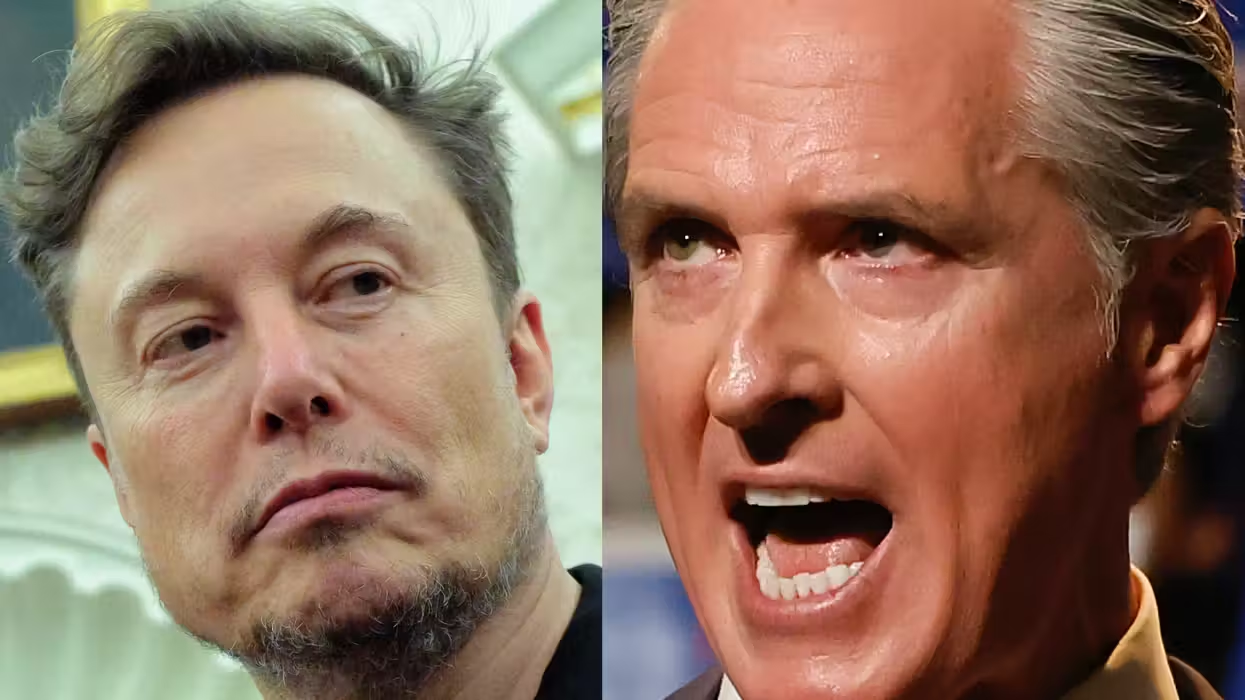Should Sen. Rand Paul (R-Ky.) run for president in 2016, he will have to defend himself from accusations that he is the embodiment of right-wing extremism, or so implies a new profile in The New York Times.
 Sen. Rand Paul, R-Ky. speaks on Capitol Hill in Washington, Nov. 6, 2013. (AP)
Sen. Rand Paul, R-Ky. speaks on Capitol Hill in Washington, Nov. 6, 2013. (AP)
At roughly 5,200 words, the Times profile on Paul isn’t exactly a “hit piece,” trying to paint the senator as a malicious or shameless political opportunist. Rather, it reads more like a disinterested overview of the issues the media will try to tie around the Kentucky senator’s neck.
Many on the right long ago predicted that Paul would be hit for his loose affiliation with controversial figures, including his own father, former Texas Rep. Ron Paul, but it looks like the Times profile lays out the exact issues Paul will face if he runs in 2016.
The first paragraph alone attempts to tie Paul to, of all things, a group of conspiracy theorists who believe that the Sept. 11 attacks on the World Trade Center were an inside job: “The libertarian faithful — antitax activists and war protesters, John Birch Society members and a smattering of ‘truthers’ who suspect the government’s hand in the 2001 terrorist attacks — gathered last September, eager to see the rising star of their movement.”
From there, the Times article goes on to describe Paul’s swift rise to political stardom, his careful distancing from some of his father’s controversial statements and the GOP’s eagerness to harness his popularity.
“Senator Paul is a credible national candidate,” former Massachusetts Gov. Mitt Romney told the Times in an email. “He has tapped into the growing sentiment that government has become too large and too intrusive.”
Romney added that Paul would most likely attract the votes and dollars of his father’s supporters, making him “a serious contender for the Republican nomination.”
Since he first arrived in Washington, D.C., voted into office on the historic November “Red Wave,” Paul has been careful to strike a pose as an independent-minded individual.
“I want to be judged by who I am, not by a relationship,” Paul told the Times. “I have wanted to develop my own way, and my own, I guess, connections to other intellectual movements myself when I came to Washington.”
But as the profile seemingly reveals, Paul’s attempts to appear independent will do nothing to halt the onslaught of questions about his supposed connections to controversial libertarian thinkers.
Much of Paul’s worldview, which the Times refers to as “paleolibertarianism,” can be traced to the Ludwig von Mises Institute, which is named for the Austrian godfather of libertarian economic thinking.
The Times pounced: “Some scholars affiliated with the Mises Institute have combined dark biblical prophecy with apocalyptic warnings that the nation is plunging toward economic collapse and cultural ruin. Others have championed the Confederacy. One economist, while faulting slavery because it was involuntary, suggested in an interview that the daily life of the enslaved was ‘not so bad — you pick cotton and sing songs.’”
Now, although the article does not explicitly state that Paul supports these notions, it does note that he has recommended work by the institute’s scholars, a seeming attempt to associate the Kentucky senator with these controversial platforms.
For his part, Paul has been proactive about removing himself from controversy and pushing back against guilt by association.
“If you were to say to someone, ‘Well, you’re a conservative Republican or you are a Christian conservative Republican, does that mean that you think when the earthquake happened in Haiti that was God’s punishment for homosexuality?’ Well, no,” he said. “It loses its sense of proportion if you have to go through and defend every single person about whom someone says is associated with you.”
 Former Texas Rep. Ron Paul's shadow is likely to loom over his son should he decide to run for president. (Getty Images)
Former Texas Rep. Ron Paul's shadow is likely to loom over his son should he decide to run for president. (Getty Images)
But again, even with his pushback, it’s almost certain Paul will have to deal with the same hints and allegations over and over again if he decides to run in 2016.
Will he dumb down his message, throw off his old associates and “evolve” his political beliefs to avoid controversy and become the “electable,” “moderate” candidate?
Not likely, said Paul’s brother, Ronnie.
“My dad stuck with, pretty much, ‘If it ain’t in the Constitution — boom’; pretty hard core, and that gave him 10 percent of the country that would die for him, absolutely,’” Ronnie Paul told the Times, adding that Rand would make concessions only “where he must.”
But he’ll stick to the message of liberty, he added.
Rand “is willing to work with them a little bit on things that in his mind really aren’t important,” he said. “But there’s no question he’s still trying to get to the same place.”
A spokesman for Paul's office did not immediately respond to TheBlaze's request for comment.
Click here to see the Times profile of the Kentucky senator.
--
Follow Becket Adams (@BecketAdams) on Twitter

 Sen. Rand Paul, R-Ky. speaks on Capitol Hill in Washington, Nov. 6, 2013. (AP)
Sen. Rand Paul, R-Ky. speaks on Capitol Hill in Washington, Nov. 6, 2013. (AP)






